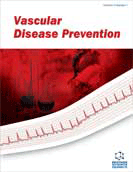Abstract
Atherosclerosis, a major vascular complication of type 2 diabetes mellitus (DM2), is a chronic inflammatory disease with increased glycoxidative stress in response to cellular and systemic glucose overload and lipid retention in the vessel wall. Glycoxidative modification of low density lipoprotein (LDL) is considered as a major causative factor of accelerated atherosclerosis in diabetic patients. Since atherogenesis starts before DM2 is diagnosed, this review will focus on the nature and extent of glycoxidative changes of LDL in subjects with impaired glucose tolerance (IGT). We review the evidence for the enhanced atherogenicity of LDL from IGT subjects including their contribution to the conversion of macrophages into a proatherogenic phenotype.
Keywords: Diabetes, low density lipoprotein, advanced glycation end products, oxidative stress
 5
5

